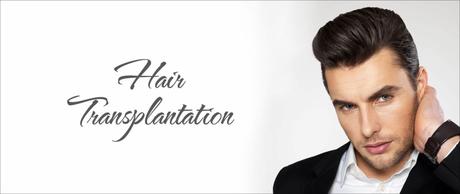Hair loss can be caused by many issues, but Hair Transplantation surgery is always a helpful solution. This type of procedure transplants hair follicles to balding areas to provide strong, healthy hair. It is not typically viewed as a risky or invasive procedure, but patients still need to exercise some caution while recovering. You can use these tips to make your hair transplant recovery go as quickly and smoothly as possible.

Most Practical Tips for Recovery After Hair Transplantation
Have Realistic Expectations
Understanding the typical timeline for hair transplant recovery will make it a little bit easier for you to take care of yourself in the days after the surgery. Small scabs will form within 24 hours, and patients can normally get back to work within two to five days. After about a week, people typically feel that the results look normal enough to go out without a hat or other head covering. Keep in mind that it is perfectly normal for all of the hair in the transplanted areas to fall out within three weeks of your surgery. The hair follicles are still there, and your scalp is just preparing to grow new hairs. Once your new hair starts to grow, it will be about three to six months before uniform coverage is achieved.
Be Gentle With Your Hair
For the first couple of days after your procedure, you should avoid washing or combing your hair. Most patients find that the area is too sensitive to touch anyways, and your scalp will need time to heal. In the first few weeks of recovery, it will be important to be very gentle with your new hair. Avoid shampooing or blow drying the hair for at least a week. It is alright to shower during this time period, but you should avoid any direct water pressure on your new hair transplants. Wait at least a month to do any sort of chemical treatment to your hair, including coloring, perming, or straightening.
Relax and Take Care of Yourself
It might not be an intense surgical procedure, but hair transplants can still put a little strain on your body. Patients may be able to return to work within a few days, but having a longer recovery time can help your body to heal quicker. Many doctors recommend that patients take about a week to just rest and recover. Treat your recovery like a mini vacation and enjoy the chance to just relax around your house. Stock up on plenty of sedentary activities like video games or movies before your surgery, so you do not get bored afterwards. Even if you feel fine, avoid any strenuous activities or exercising for at least seven days because sweating can increase infection risks.
Stay As Healthy As Possible
During the first weeks of recovery, try to eat a healthy diet that is high in fresh produce, lean meats, and whole grains. If you have diabetes, you will need to be especially careful about stabilizing your blood glucose levels because high blood sugar can impair healing and damage your new grafts. Your immune system needs a lot of water to function properly and fight off infections at the graft site, so make sure you are drinking at least 64 ounces a day. Your doctor probably told you to avoid tobacco use in the days leading up to your surgery, and you should continue to follow this advice during recovery. Smoking or other forms of tobacco impair circulation, making it difficult for your body to bring oxygen and other nutrients to your new hair. It is best to avoid alcohol for at least seven days after your surgery. Not only is alcohol dangerous to drink with most pain medications, but it can also reduce healing speed.
Take Suggested Medications
Right after your surgery, you may be prescribed antibiotics. This will reduce the risk of an infection that could make your transplant have complications, so be sure to take the full course of antibiotics. You can manage pain by taking recommended over the counter or prescription medications. Anti-inflammatory painkillers are particularly helpful because they will also reduce swelling. Depending on your situation, your doctor may also prescribe you a hair loss medication like minoxidil or propecia. These can help to boost hair growth and stop the loss of hair in the future.
Listen to Your Doctor’s Advice
Every single hair transplant patient is different, so the most important piece of advice is simply to follow your surgeon’s instructions. Your own case may require different care than the typical suggestions. Take careful notes and follow any post operative care plan that your surgeon gives you. The office will give you an aftercare package with everything you need to take care of your new grafts. Make sure you take the time to go to all of your post operative appointments with your doctor. Carefully following instructions will ensure the best possible outcome for your case.
Dr. Jeffrey Epstein, MD FACS is a renowned expert in hair transplants, and founder of Foundation for Hair Restoration in Miami and New York City. Dr. Epstein is considered an authority in hair restoration with more than 24 years in performing the most advanced techniques for FUE including special expertise in the “No Shave” technique. He also educates different specialists from around the globe.

